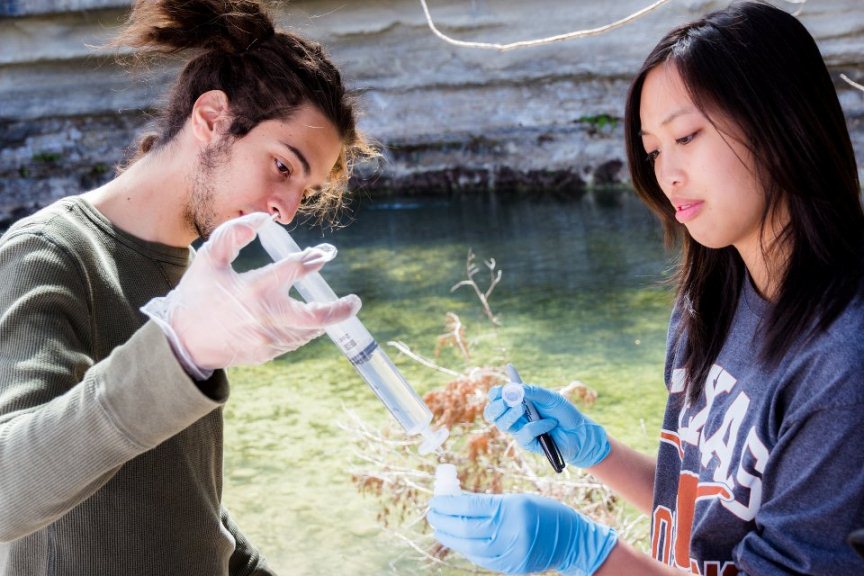For Employers
The EVS Program is producing trained environmental science professionals, ready to prove that “what starts here changes the world.” Read on to learn more about our students, our practical training and our academics.
Meet Our Students
There is no better way to get to know the EVS Program than through our students. Starting with a small group of just 20 students in the spring of 2010, EVS students now come from all sorts of backgrounds, and bring with them interests as varied as the environment they study. EVS students truly reflect the intensity, intellect, and inspiration behind the EVS Program.
Practical Training
The EVS Program is leading the way in training environmental scientists through an undergraduate curriculum that incorporates practical skills training into the educational process. As part of their required coursework, EVS students gain training and practice in the following skills:
- Statistical analysis, including conducting and interpreting t-test, ANOVA, and regressions
- Analysis of data quality
- Multidisciplinary group communication and project development
- Compiling historical data from government agencies
- Finding and evaluating primary literature from a variety of sources
- Drafting Environmental Impact Assessments, as well as writing short scientific reports
- GIS training, along with traditional map reading and interpretation
- Field measurement of water quality parameters in marine and freshwater environments
- Identification of carbonate rock types and vegetation types
- Measurement of vegetation transects, synthesis of ecological and hydrological data, and interpretation of water quality data
This is all in addition to more specialized training and practice that EVS students gain through their specialization track (biology, geology, or geography) and their senior capstone research projects.
Interdisciplinary Coursework
In order to graduate, students in the EVS Program complete two full years of interdisciplinary, scientific coursework including:
- a semester-long, hands-on introductory field seminar in environmental science
- a semester-long research methods course focused on interdisicplinary environmental problem solving
- a capstone research project designed and executed by the student him or herself
- differential and integral calculus
- a full year of chemistry (plus chemistry lab)
- a full year of biology plus two ecology courses
- one semester of calculus-based physics (plus physics lab)
- three geology courses, including hydrogeology
- targeted coursework in GIS, economic theory, climates & oceans and policy & ethics
In addition to this interdisiciplinary foundation, EVS students select a principle discipline (specialization track) in which to complete an additional year of coursework:
- Biological sciences track – includes coursework in genetics, evolution, biostatistics, taxon-based diversity, physiology, and conservation.
- Geographical sciences track – coursework that includes weather and climate, advanced GIS, remote sensing, geomorphology, and comparative ecosystems.
- Geological sciences track – coursework in earth materials, sedimentary rocks, field & stratigraphic methods, and additional calculus and physics.
If you or your company are interested in learning more about the EVS Program, or if you would like to participate in one of our networking events for students, please contact the EVS Program Office at evs@esi.utexas.edu.
